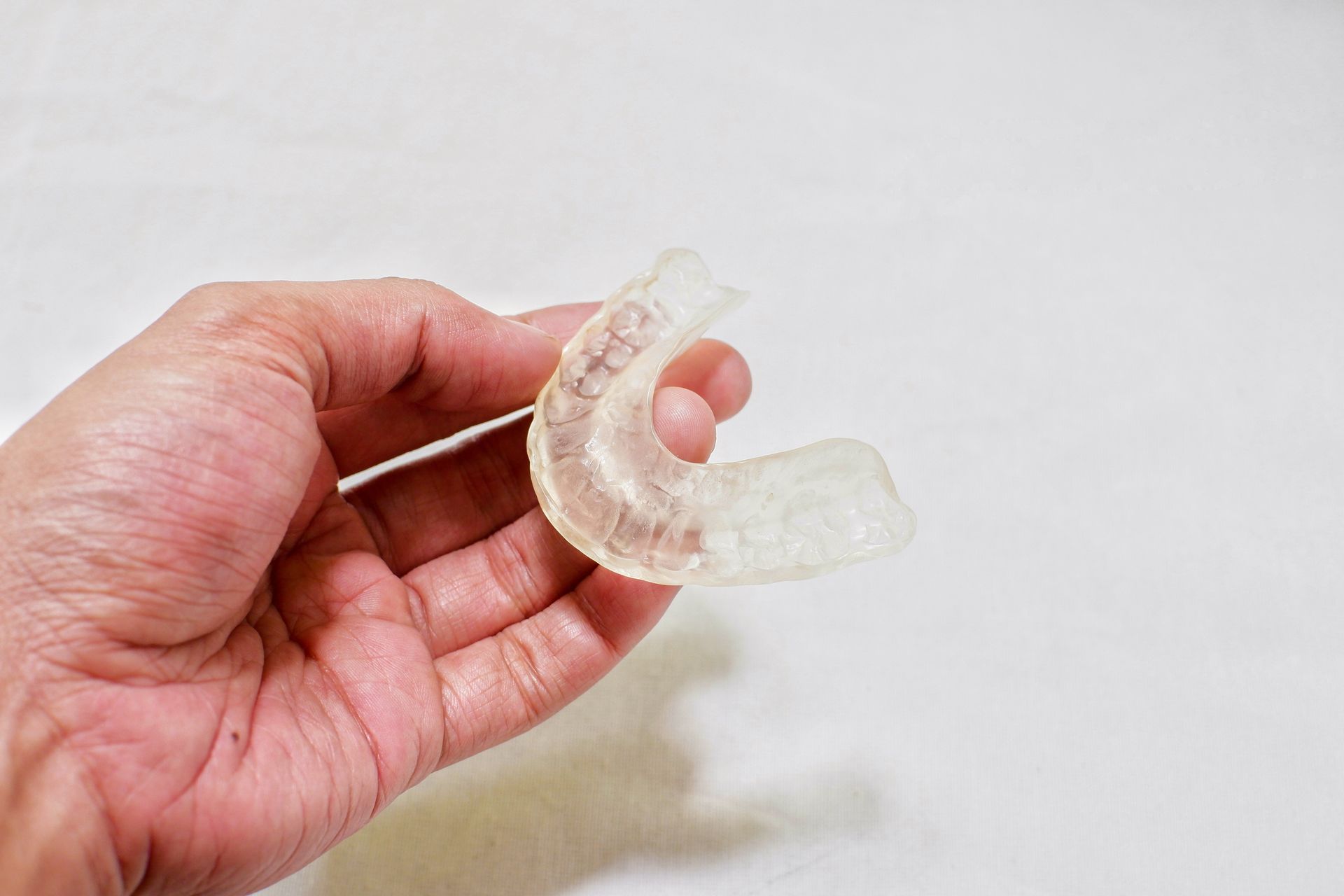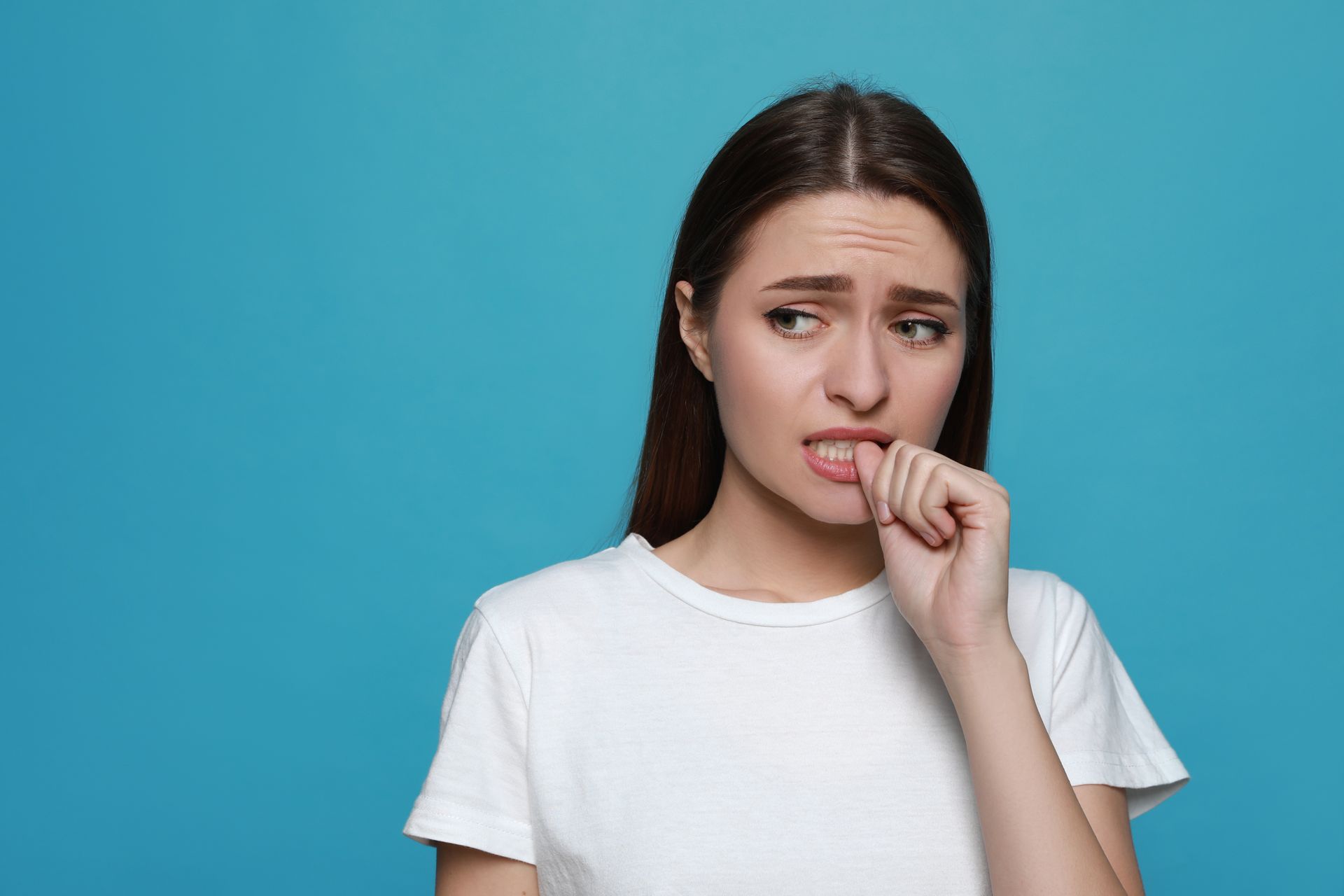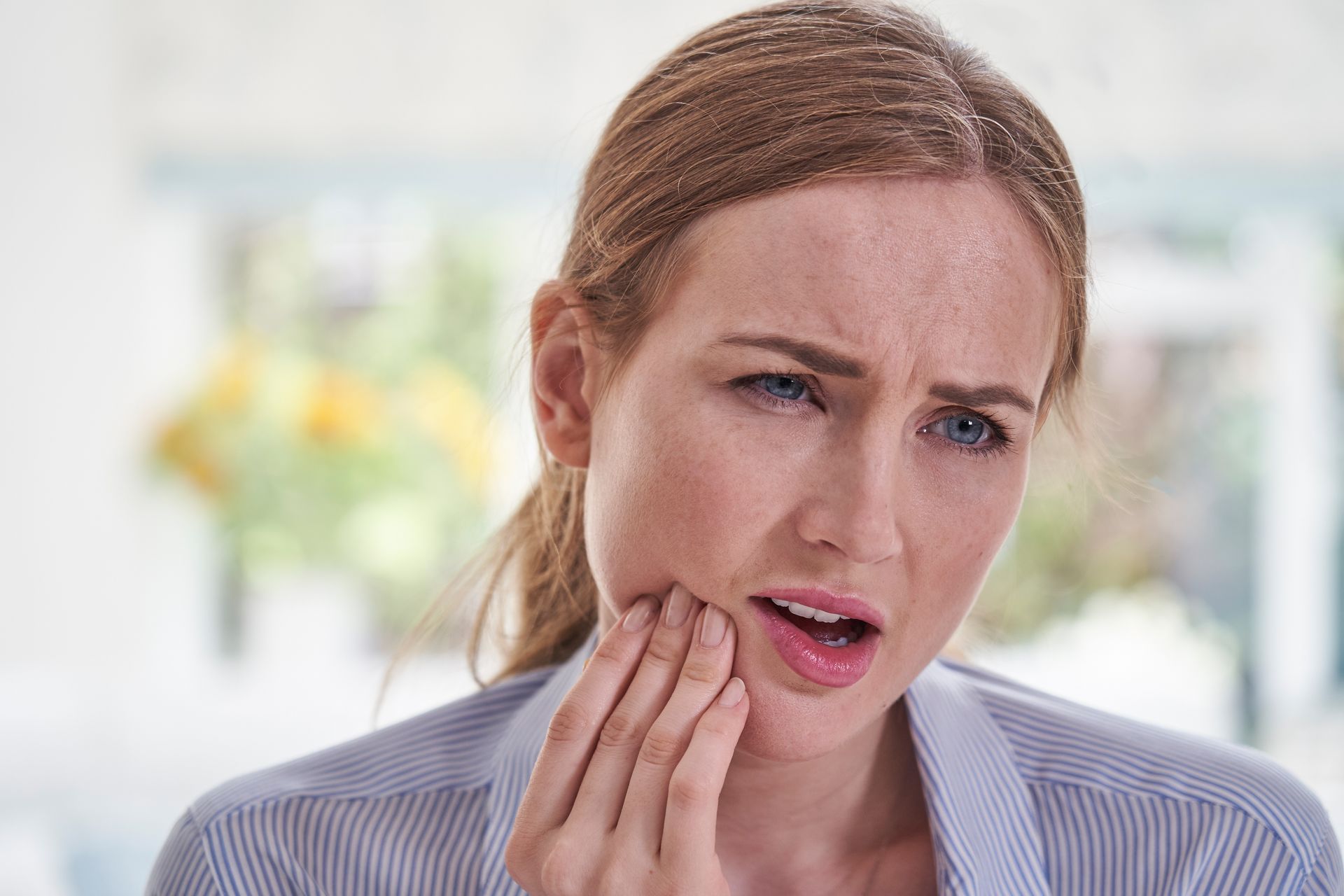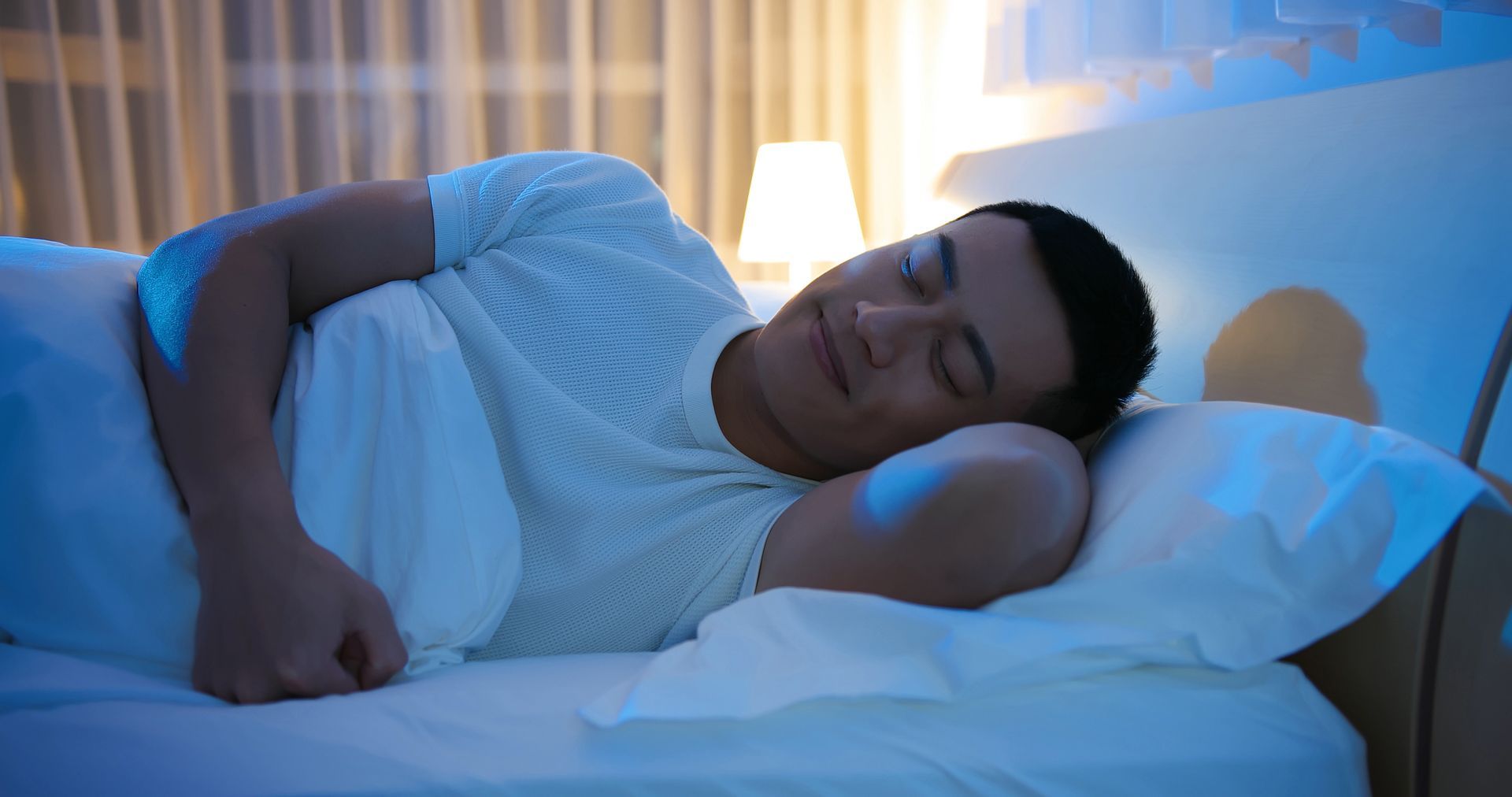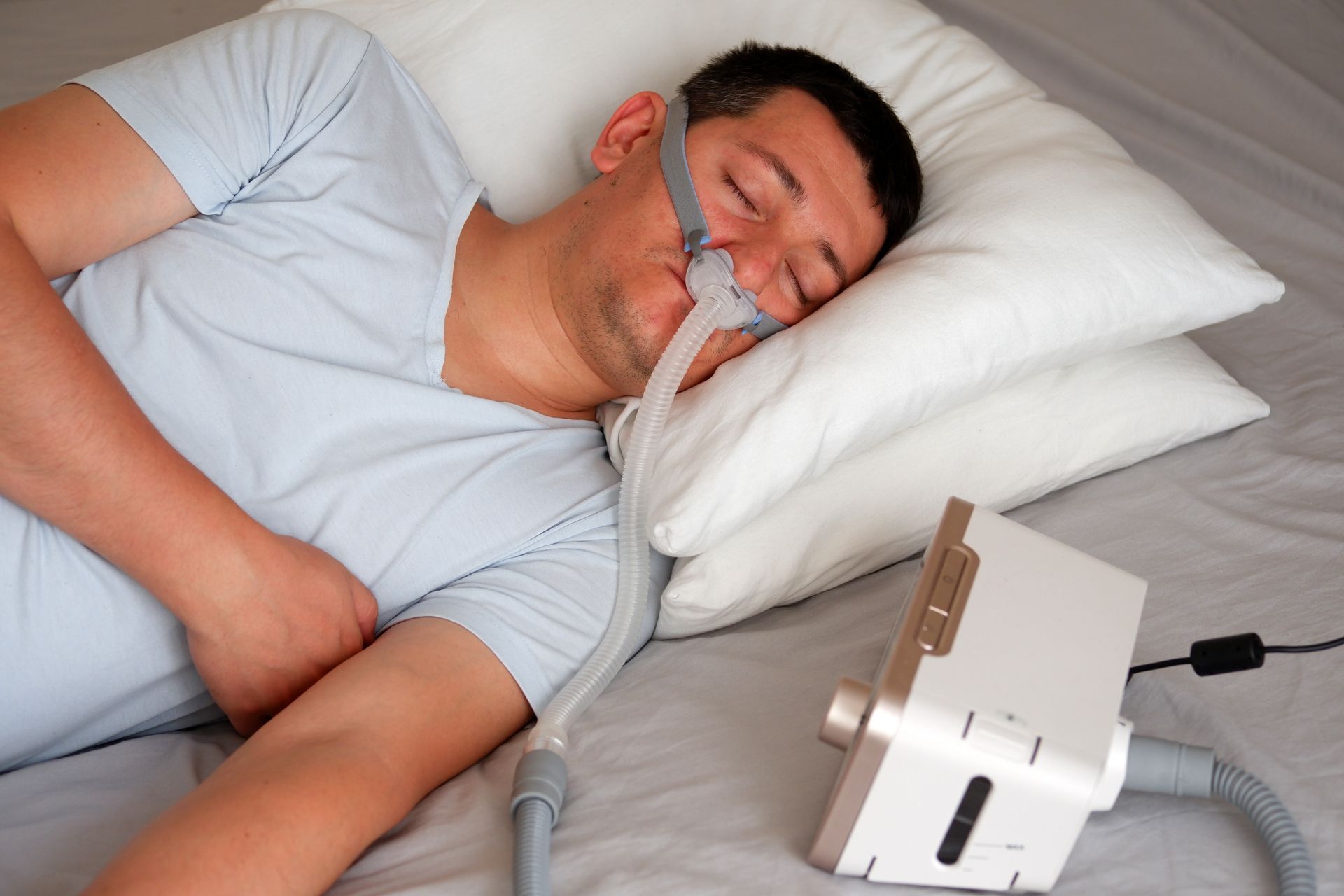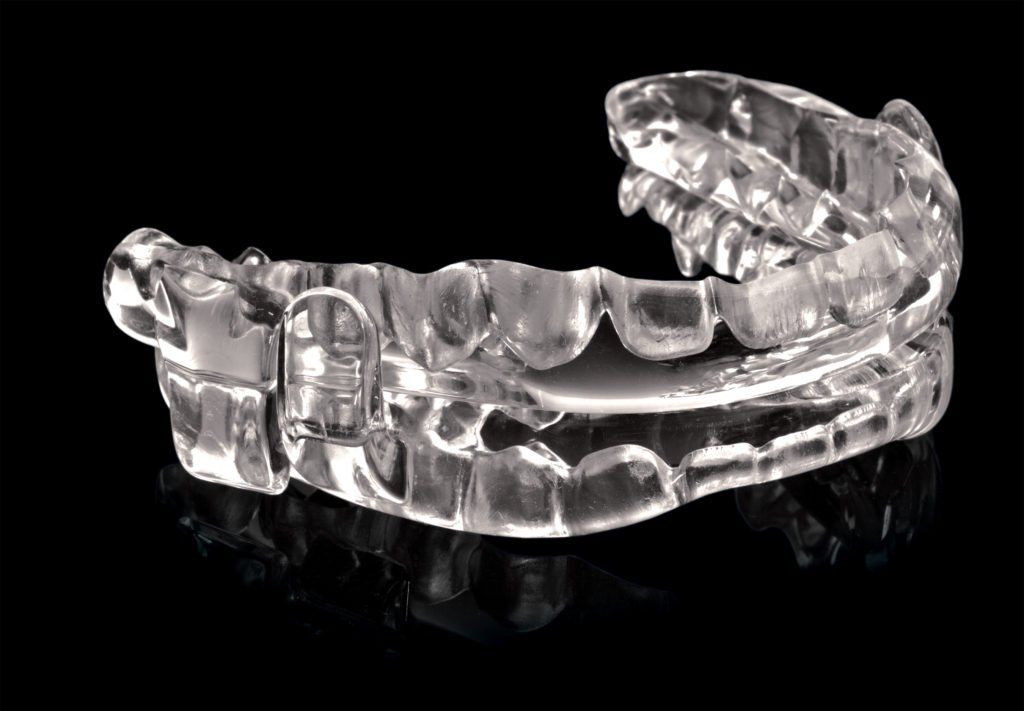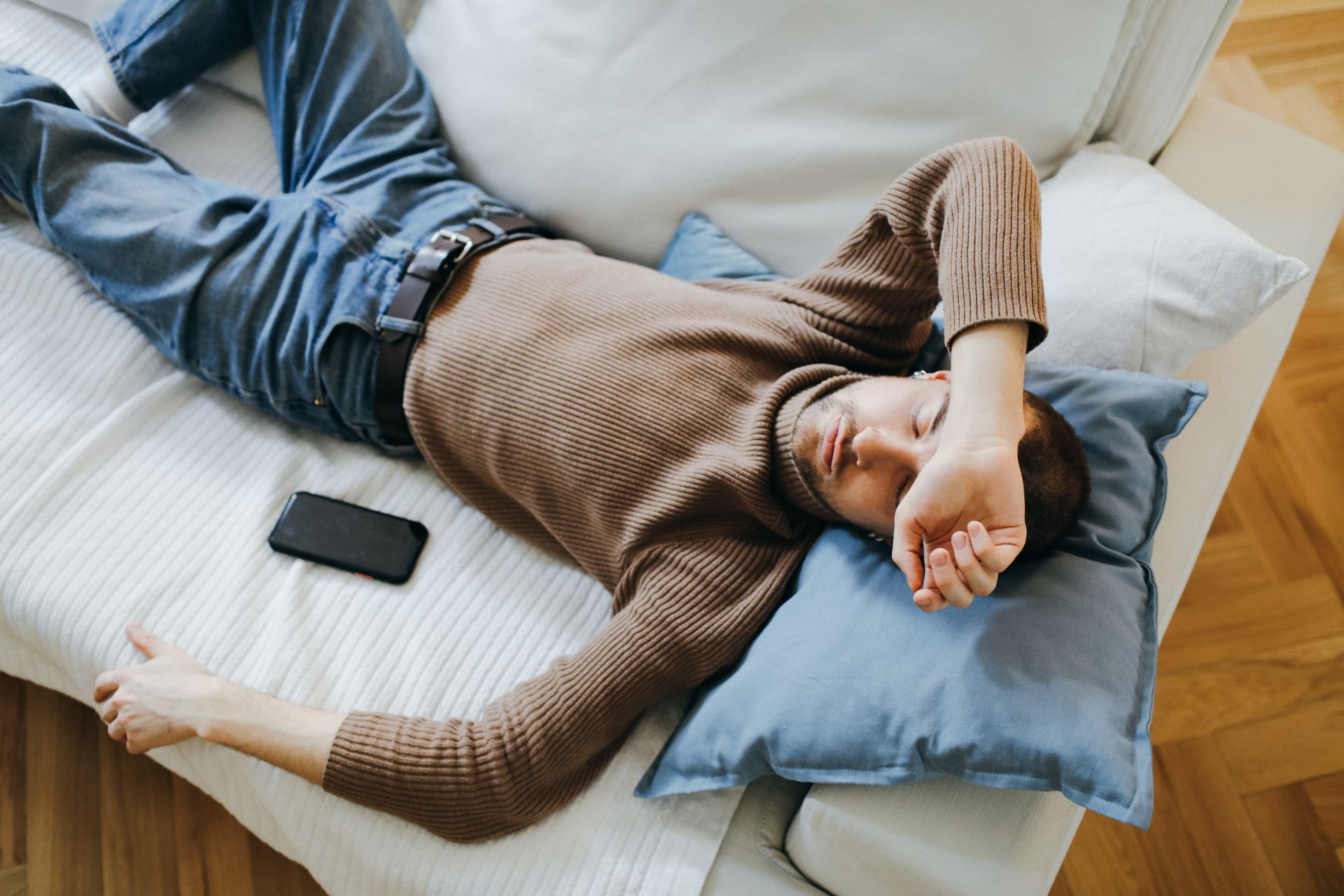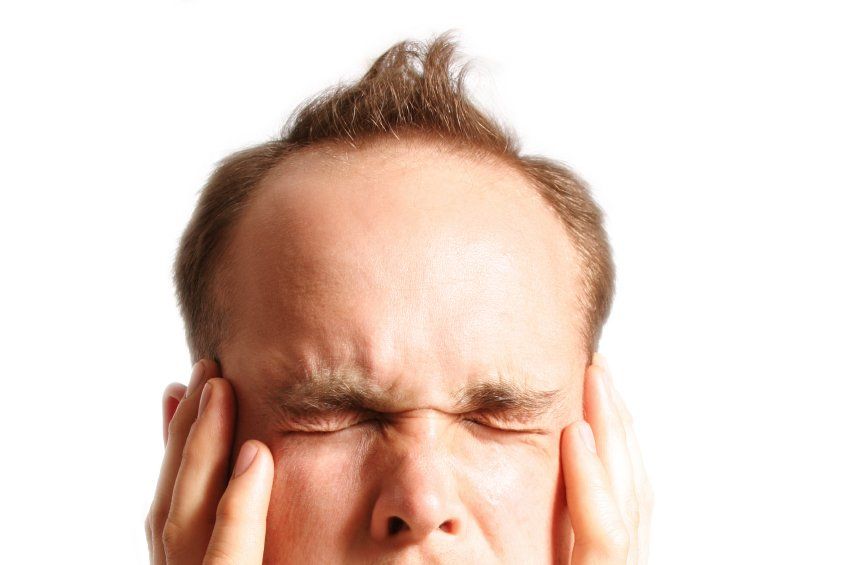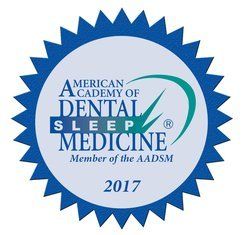How To Stop Grinding Your Teeth: Tips & Techniques
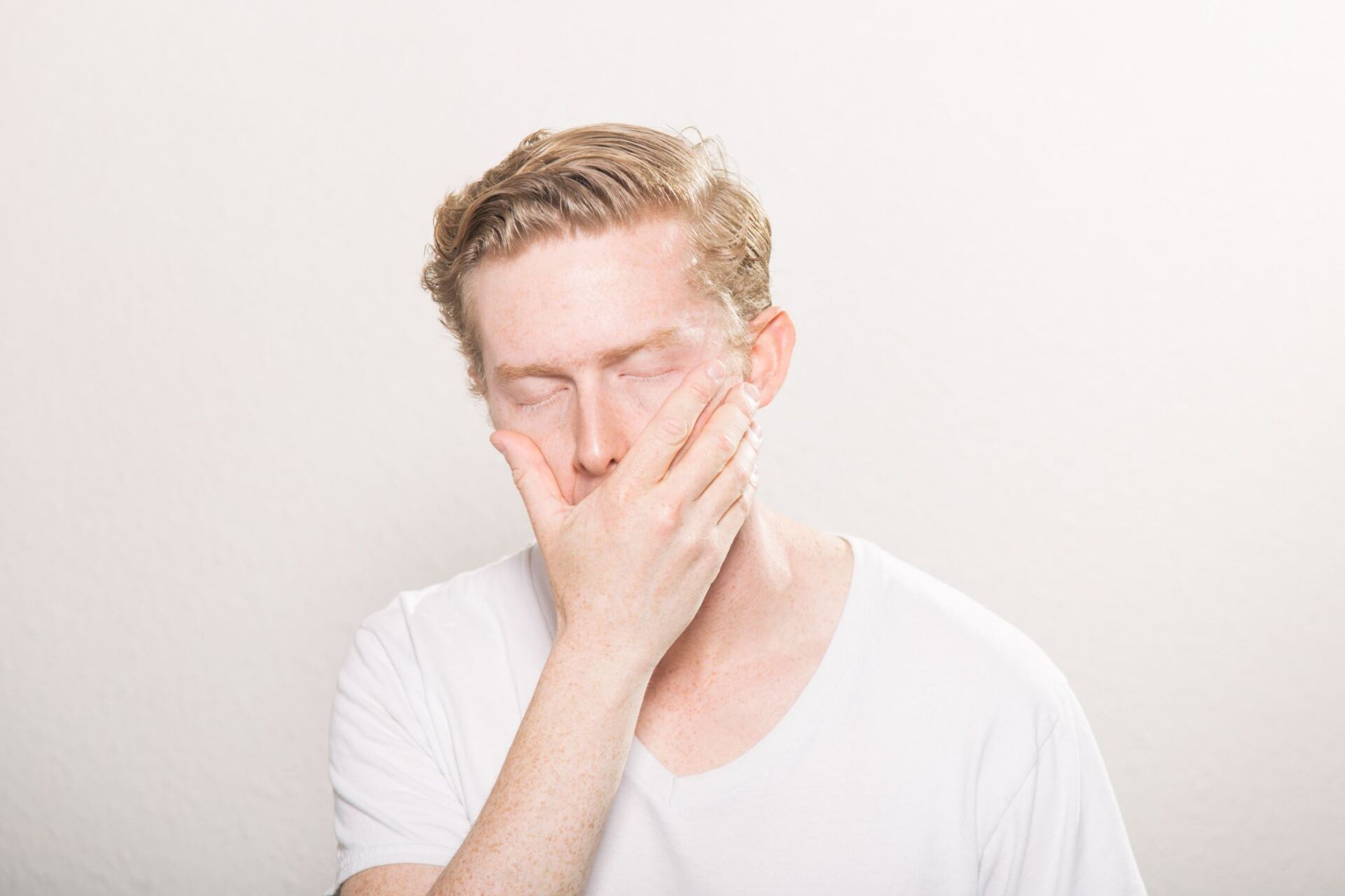
Teeth grinding is the most common cause of jaw pain. Grinding your teeth also results in fractured teeth and the destruction of dental work, which can even change how you look. People who grind their teeth during the day can make conscious changes to reduce their teeth grinding for those who grind their teeth at night. Fortunately, with a visit to Dr. Phillips, you can discover how to stop grinding your teeth.
What is Teeth Grinding, and What Causes it?
Grinding or clenching your teeth, or bruxism, is a common condition affecting millions of people and, if left untreated, can lead to broader health issues. According to the American Dental Association (ADA), a 2020 ADA Health Policy Institute report stated that half of the dentists saw a rise in clients with stress-related dental problems, primarily due to teeth grinding and jaw clenching. It can happen during the day or night and often goes unnoticed until the person is alerted by a partner or family member. Treating bruxism can prevent further damage to the teeth and relieve any symptoms associated with the condition, and there are several steps you can take to stop grinding your teeth and protect your oral health.
People grind and clench their teeth for various reasons, including stress and anxiety, misalignment of the teeth and jaw, or an abnormal bite. In adults, teeth grinding is often caused by emotional tension and stress and can become a subconscious habit. In children, teeth grinding is usually due to an immature bite and can be triggered by new teeth erupting or the recent placement of braces.
How Do You Know if You're Grinding or Clenching Your Teeth?
Grinding or clenching your teeth can be challenging to identify since it usually happens when you are unconscious or sleeping. However, several signs could indicate you are grinding your teeth.
Common symptoms of teeth grinding include:
- Waking up with a sore jaw
- Frequent headaches
- Increased sensitivity or pain in your teeth
- Tired or tight jaw muscles
- Pain that feels like an earache, but there is nothing wrong with your ear
- A locked jaw that is difficult to open or close completely
- Neck or face pain
- Noticing that your teeth feel different or worn down
You or your sleep partner may also notice that you make clenching or grinding sounds during the night.
At a dental appointment, your dentist may suspect teeth grinding if you have the following:
- Teeth that are chipped, loose, flattened, or fractured
- Worn enamel on your teeth
- Gum recession
Possible Causes of Teeth Grinding
Many people grind their teeth and tighten their jaws without realizing it, especially at night. Although stress and anxiety can lead to teeth grinding, other common causes are:
- Posture. Poor posture is not only horrible for your back; it's also bad for your teeth. When the body's joints aren't in proper alignment, it can result in jaw clenching and grinding.
- Misaligned teeth. If the upper and lower teeth don't fit together correctly, the misalignment may result in the tendency to grind teeth or clench jaw muscles.
- Sleep disorders. Sleep habits and sleep disorders can lead to teeth grinding at night. Chronic obstructive sleep disorder, also known as sleep apnea, is a known cause of sleep bruxism. Resolving sleep apnea can help stop teeth grinding. Sleep terrors and insomnia may also result in grinding teeth at night.
- Joint disorders. The temporomandibular region is around the jaw, mouth, and ears. This area contains the temporomandibular joints and jaw muscles, which allow the jaw to open and close. Disorders in this area can affect teeth grinding and a sore jaw.
- Stimulants. Stimulants like caffeine, nicotine, and alcohol can trigger teeth grinding. Avoiding these can help prevent teeth grinding.
- Stress. Stress is a common cause of teeth grinding and clenching. Finding ways to manage and reduce stress can help decrease teeth grinding. These can include relaxation techniques such as progressive muscle relaxation, yoga, deep breathing, meditation, and guided imagery can help relax the jaw muscles and stop teeth grinding.
- Chewing on Objects. Chewing on objects such as pencils or fingernails can trigger teeth grinding. You may also need to avoid chewing gum, which can exacerbate teeth grinding.
Finding out how to stop grinding teeth at night takes getting to the root cause of grinding. Discovering the cause provides clues, pointing to the appropriate solutions.
Prevent teeth grinding during the day.
It is crucial to identify triggers that cause teeth grinding if you intend to stop grinding them during the day. Pay attention to your habits during the day and see if you notice when and if your grinding or clenching is worse. A TMJ specialist or dentist specializing in bruxism can provide you with exercises or relaxation techniques you can do throughout the day if you notice yourself clenching and, in some cases, offer medical treatment like muscle relaxants or Botox for bruxism.
Prevent teeth grinding and clenching at night/in your sleep.
You'll have to make changes during the day to stop grinding or clenching your teeth at night or in your sleep. Start by talking to your dentist or doctor to determine if you have underlying medical issues that could be causing the grinding. Additionally, your dentist may suggest you wear a mouthguard, splint, or other oral appliance. At the same time, you sleep to protect your teeth from further damage and keep your mouth in the proper alignment, helping your TMJ to relax. A custom-fitted mouthguard also helps lessen the impact of teeth grinding by covering the teeth to create a physical barrier that reduces damage.
How To Stop Child/Baby Grinding Teeth
Many children grind their teeth at night, but most grow out of it. If your child or baby grinds their teeth, the first thing to do is identify what might be causing the behavior. Stress, anxiety, or an underlying medical condition can cause your child to grind their teeth. If the grinding is stress-related, identifying and addressing the source of the stress, such as an overly demanding school schedule or peer pressure, may help.
If a medical or dental condition causes the grinding, your child's dentist or doctor can help you determine the best action. If the grinding results from a habit, it can help redirect your child's attention when they start to grind and provide them with other activities that may help reduce their stress and anxiety.
Side Effects of Teeth Grinding
Grinding your teeth may seem like a harmless habit. After all, it's easier to notice this behavior if you're not on the lookout for it. And unless your significant other or family members complain about the noise from your nighttime teeth grinding, it's difficult to find proof of the act. However, long-term grinding of teeth at night can lead to significant side effects like:
- Pain in the jaw. The pressure and movement from teeth can lead to tenderness in the muscles, causing jaw pain. For some people, the pain may become chronic and severe.
- Headaches. The constant back-and-forth movement and clenching can impact the muscles around the neck and head, resulting in headaches due to muscle fatigue and tension.
- Wearing down teeth. Like sandpaper eventually smooths a surface, the repetitive motion from teeth grinding can flatten teeth and wear the enamel down over time. Teeth grinding can change the appearance of your teeth, causing them to look shorter and making chewing more difficult.
- Damage or fractured teeth. Grinding can destabilize teeth, making them shift and feel wobbly. The force from grinding may also crack teeth, causing pain and affecting oral health. Misalignment and cracked teeth can result in gum disease, cavities, and tooth loss — leading to poor overall health.
- Chronic ear pain. The temporomandibular area is closely connected. If the muscles around the ear become affected due to teeth grinding, chronic ear pain may occur.
- Facial muscle changes. Most people need to be aware that teeth grinding can change the shape of your face. Long-term bruxism can cause shorter teeth. Shorter teeth, in turn, change the structure of the face and jaw — leading to a sunken appearance. In addition, other muscles around the face can enlarge to compensate for dental changes. If you're concerned about your appearance, you may want to note that chronic teeth grinding can change the way you look.
Remedies for Teeth Grinding
The methods for how to stop teeth grinding at night versus teeth grinding when you are awake are typically the same. Although some treatments aren't quite possible when you're asleep, their benefits can last even after you've gone to bed.
- Reductive coronoplasty. Reductive coronoplasty directly involves changing or leveling the biting surface of teeth. This procedure reshapes crowded or crooked teeth, improving teeth alignment. Conversely, additive coronoplasty can add to the surface of teeth to help treat bruxism.
- Dental Appliances: Mouthguards, night guards, and splints. A mouthguard does just that — it guards teeth. Typically used for sports, a mouth guard keeps teeth from injuries sustained during activity. A night guard protects teeth from grinding at night. Lastly, a bit splint guides jaw movement, enabling the jaw to land in the appropriate position. These appliances protect teeth differently, and finding the right one for your situation is essential.
- Biofeedback. Biofeedback allows a person to train themselves by monitoring auditory and visual stimuli from the body. Although biofeedback needs a person to be alert, the technique can still help sleep bruxism by reducing overall stress.
- Stress reduction techniques. Though implementing stress reduction techniques such as yoga, exercise, and meditation requires a person to be awake, they can also help with nighttime teeth grinding. Allowing muscles to decompress and relieve tension alleviates stress-induced teeth grinding, even at night.
- Tongue and jaw muscle exercises. Most people don't stop to think about it, but their faces and mouth are a team of tissue, muscles, bones, and joints that closely affect each other. The tongue, for example, affects how the jaw moves. You reduce teeth grinding by exercising the right muscles — like the tongue and jaw.
- Behavior changes. Behavioral modifications like changing your posture and avoiding environments that cause stress can reduce instances of teeth grinding. Cognitive Behavioral Therapy (CBT) can help change behavior and thought patterns that lead to teeth grinding.
- Medications. A doctor can prescribe medication to help treat bruxism if all other treatments don't work. When used for short periods, muscle relaxants can relieve tension in the temporomandibular area. In severe cases of teeth grinding, botox injections can alleviate muscle tension. Antidepressants and anti-anxiety medications assist in decreasing anxiety, allowing jaw muscles to relax and reduce bruxism.
How Can a TMJ Specialist Help with Teeth Grinding and Clenching?
A TMJ specialist is a dentist board-certified in orofacial pain and conditions affecting the TMJ. TMJ specialists have extensive knowledge and experience regarding the structure, function, and pathology of TMJ. In addition to more thorough diagnostic evaluations, they can often provide more effective and long-term solutions for teeth grinding than your doctor or dentist alone. This is because TMJ specialists use a holistic approach to treatment, focusing on the underlying causes of the teeth grinding, such as stress, anxiety, or misaligned teeth, rather than just treating the symptoms. They often work with other medical experts like dentists or sleep physicians for more comprehensive care and treatment.
Protecting Your Oral Health
Protecting your teeth is critical to taking care of your overall health. Chronic teeth grinding can result in costly dental work, poor oral health, and chronic pain. If you're experiencing a sore jaw, headaches, or cracked teeth, seeking an expert diagnosis to find the cause is the first step to finding a solution. Get the answers you need on how to stop grinding your teeth at night or keep from grinding in the daytime to protect your oral health.
As a TMJ and sleep apnea dentist, Dr. Katherine Phillips specializes in diagnosing and treating bruxism. With her Master of Science in Orofacial Pain From USC and extensive experience in TMJ therapy, Dr. Phillips utilizes proven and effective evidence-based medical interventions to identify bruxism and help find the right treatments to suit your needs.
Get in touch today for more information.
Contact Us Today For A Consultation!
Contact Us
Thank you for reaching out to us at REstore TMJ and Sleep Therapy. We look forward to helping you. We will follow up within 24 hours for contact requests received during normal office hours Monday – Thursday. If you have submitted a request later in the day on Thursday – Sunday, we will follow up on Monday. If you would like to talk to us before we can get to your request, please feel free to give us a call at 281-296-6797 Monday – Thursday 8am – 4:30pm. Have a great day!
Regards,
Dr. Katherine Phillips and Staff
Please try again later.
REstore TMJ & Sleep Therapy P.A.
1001 Medical Plaza Drive,
Suite 200 | The Woodlands, TX 77380
281-296-6797
Dr. Phillips serves TMJ & Sleep patients in: The Woodlands TX | Spring TX | Conroe TX Tomball TX | Cypress, TX | Houston, TX | Kingwood TX | Humble, TX | Katy TX
© 2023 by REstore TMJ & Sleep Therapy | Terms Of Service & Privacy Policy | XML Sitemap
-2700x842-1920w.png)





